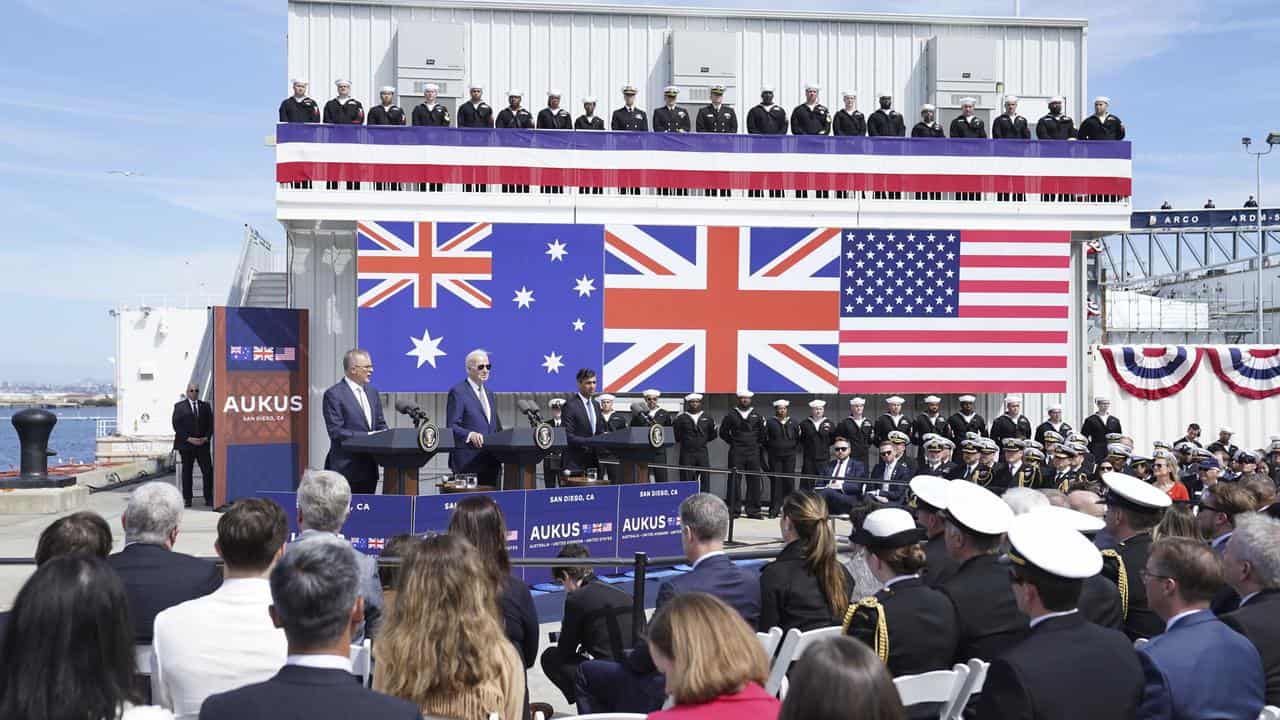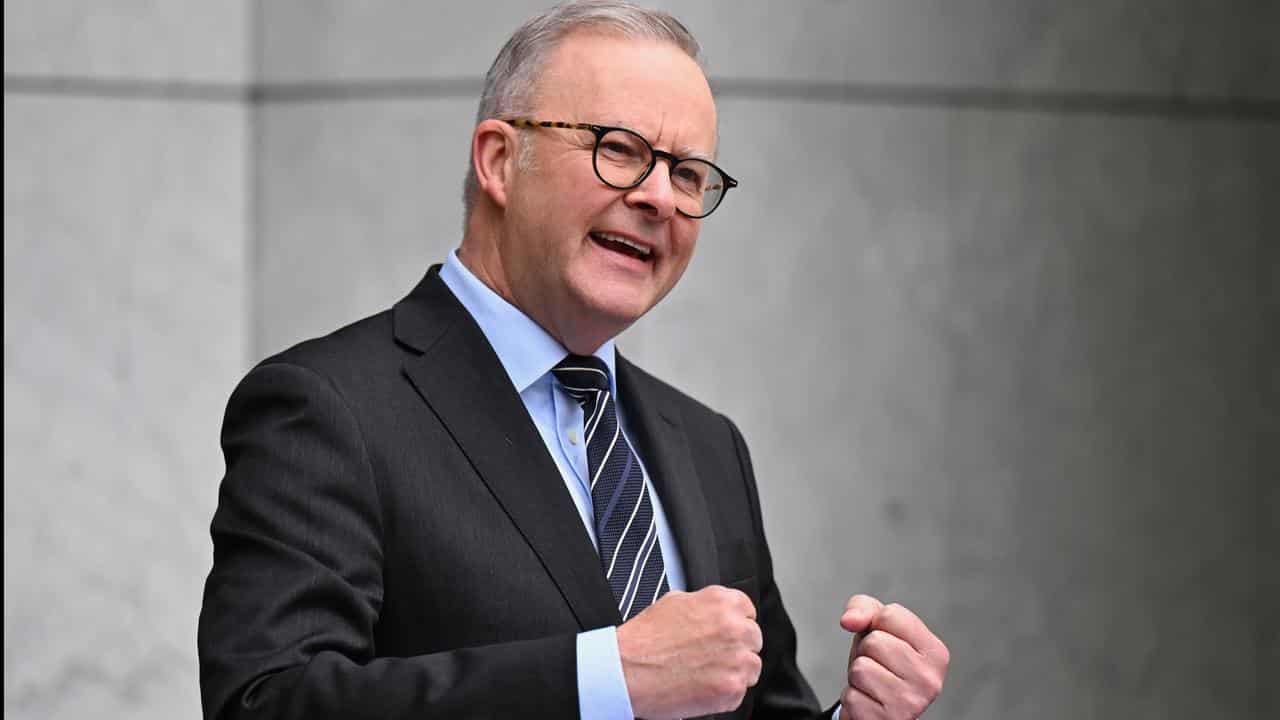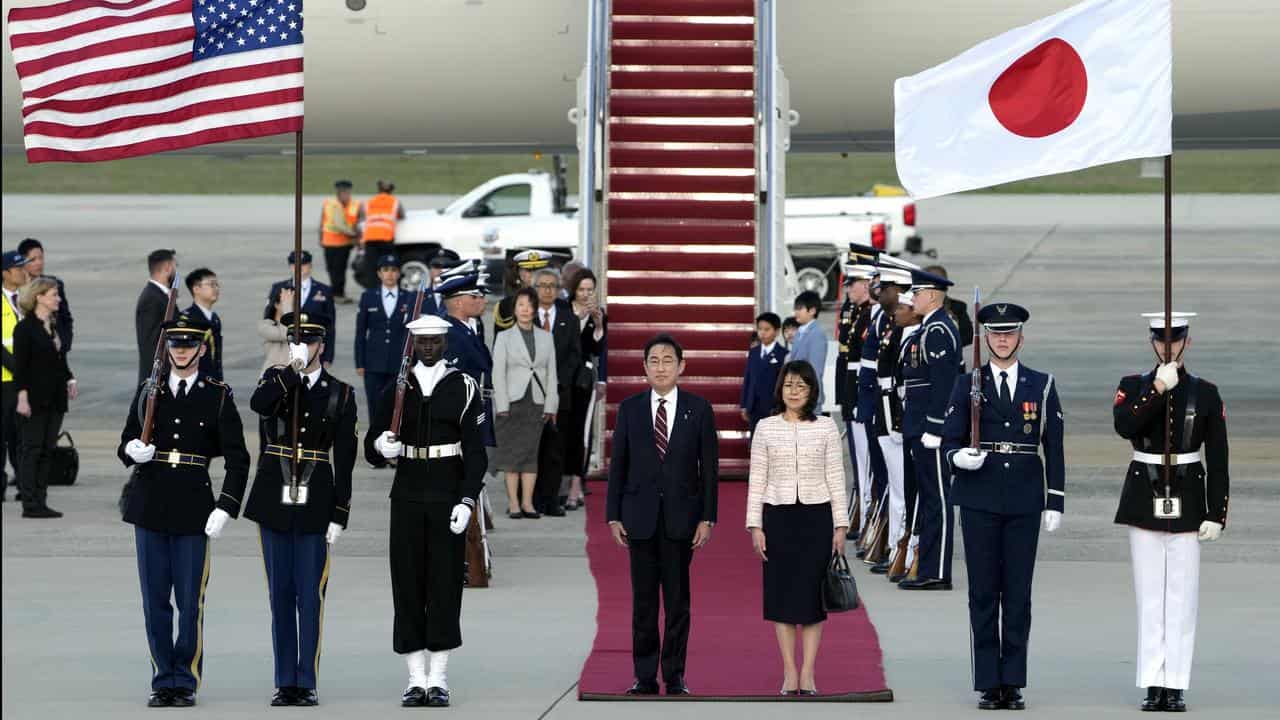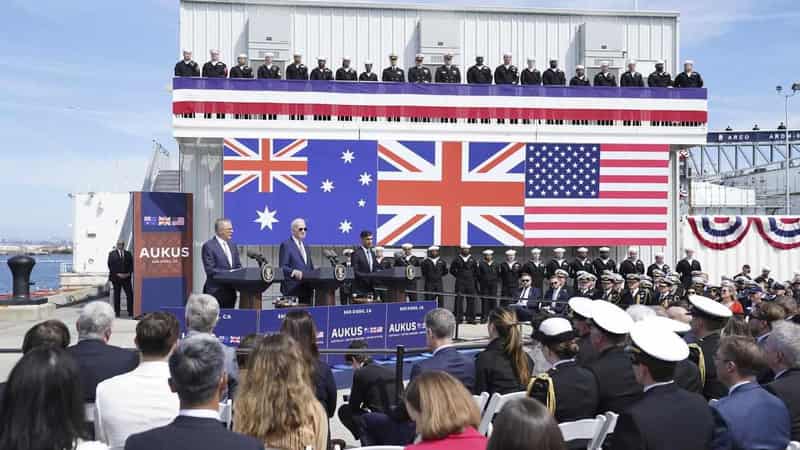
Partnering with Japan for technology sharing as part of AUKUS is a "natural evolution" of the trilateral security pact, the prime minister says.
However, Anthony Albanese indicated working alongside Japan as part of AUKUS does not mean the alliance of Australia, the UK and US would formally expand to include a fourth country.
In a joint statement, the three AUKUS partners said they were considering working with Japan as part of advanced capability projects.
While the security pact, set up in 2021 as part of efforts to push back against Chinese aggression in the Indo-Pacific, was designed to deliver nuclear-powered submarines to Australia, it also focuses on technology sharing as part of a second pillar of the agreement.
Mr Albanese said Japan was a natural candidate for AUKUS to work closely alongside.
"We're engaging in our defence relationship with Japan across the board extensively," he told reporters in Canberra on Tuesday.

"We have upgraded that defence relationship and it's a natural thing for us to look at Pillar II to cooperate.
"Japan, of course, is a Quad partner along with the United States and India, and we see this as a natural evolution that's occurring," he said, referring to the Quadrilateral Security Dialogue between Australia, India, Japan and the US.
AUKUS had long been clear in its intent to work alongside other countries as part of capability projects.
"Recognising Japan’s strengths and its close bilateral defence partnerships with all three countries we are considering cooperation with Japan on AUKUS Pillar II advanced capability projects," the joint statement said.
While Australia was focused on working with its partners as part of AUKUS, Mr Albanese said he was open to working with like-minded countries in the future for the second side of the security pact.
"There is no plan to expand AUKUS beyond the three countries," he added.
"When it comes to Pillar II, what we'll look at is, project by project, the desirability of further engagement."
Defence Industry Minister Pat Conroy said it made sense for AUKUS to work closely with Japan.
"Japan is a close bilateral defence partner with all three AUKUS nations there's a strong foundation of trust and cooperation, and Japan is at the forefront of developing cutting edge defence capabilities," he told ABC Radio on Tuesday.
"It's got one of the most advanced economies in the world so it is a logical country for us to partner with."
US President Joe Biden will hold talks with Japanese Prime Minister Fumio Kishida on Wednesday, when the AUKUS agreement will likely be discussed.

Opposition Leader Peter Dutton said the partnership between AUKUS and Japan was a good outcome for the security alliance,
"The work that we're doing in space, the work that we're doing with artificial intelligence, the underwater autonomous vehicles, all of that is part of AUKUS Pillar II. The Japanese are incredibly important allies," he told ABC Radio.
"Our job is to join up with like-minded partners to make sure that we can keep peace in our region, and to make sure that our relationship with China grows, our trading relationship grows."
Coalition foreign spokesman Simon Birmingham said Japan was the perfect partner but stressed the importance of ensuring nuclear submarines were delivered to Australia under the pact, following reports of delays.
"It's important to make sure there is 110 per cent commitment across three AUKUS partners for the delivery of (nuclear submarines) along the timelines that are outlined," he told Sky News.
"It's important that everybody keeps the foot down on the pedal to keep things going there."









